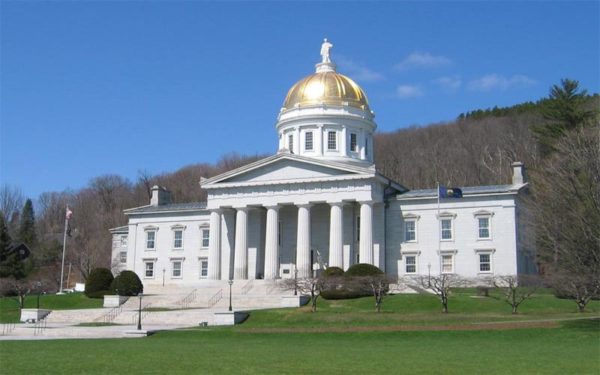Jan 26, 2020
Phelps Turner of the Conservation Law Foundation says one area of concern is the recommendation that Maine adopt federal guidelines for allowable levels of PFAS in drinking water.
Jan 08, 2020
The Maine PFAS Task Force recently released a draft of its recommendations for how to protect residents from these dangerous chemicals, but they fall well short of the bold action that is needed. But there are still opportunities for legislators and regulators to make a difference.
Jan 07, 2020
With the Vermont General Assembly reconvening, CLF is working with lawmakers to advance solutions that protect our natural resources, build healthy communities, and sustain a vibrant economy on behalf of all Vermonters. This session, we’re focusing on cutting carbon, limiting plastic pollution, protecting the state from toxic “forever chemicals,” defending water quality, and more.
Dec 20, 2019
“Families should have confidence in the safety of their drinking water,” said Brad Campbell, executive director of the Conservation Law Foundation.
Dec 18, 2019
“These rules are good news for public health in Massachusetts,” said Brad Campbell, president of the Conservation Law Foundation.
Dec 13, 2019
“This is great news for public health in the Commonwealth,” said CLF President Brad Campbell. “I applaud Governor Baker for setting protective standards for six of the so-far unregulated toxic PFAS compounds showing up in drinking water systems throughout New England, and for giving Massachusetts cities and towns new resources in his supplemental budget to make local water supplies safe.”
Dec 13, 2019
“We think ultimately the science will show that the standards should be even tighter, but this will certainly improve the protection of public health, and it opens a process to ensure that all these toxic chemicals can be out of our drinking water,” said Brad Campbell, president of the Conservation Law Foundation.
Nov 08, 2019
Amy Moses, Rhode Island director of the Conservation Law Foundation, said that at a minimum any regulations in the state must have an enforceable drinking water standard at the lowest possible level for some of the most common PFAS chemicals. But she said it’s not enough to target only a few of the compounds when there are thousands of slightly different variations in the PFAS family.
Nov 05, 2019
“It’s really unconscionable that the system allows this to continue,” said Caitlin Peale Sloan, also a senior attorney at the Conservation Law Foundation in Boston. “These forever chemicals enter your body, and don’t leave, and they compound. Protecting the public from these chemicals should be an urgent concern.”
Oct 01, 2019
As they campaign in New Hampshire, presidential candidates must address the critical environmental threats facing our communities.




